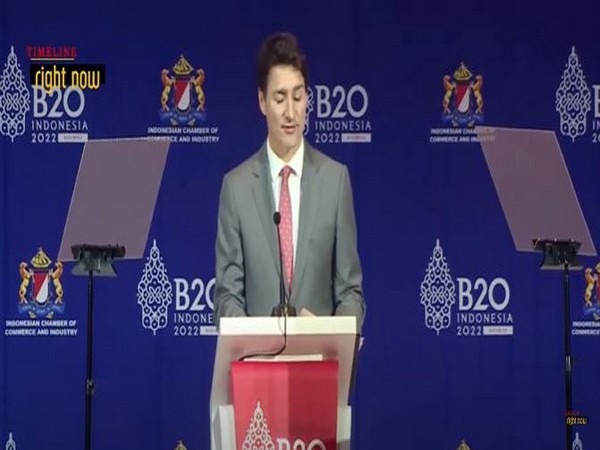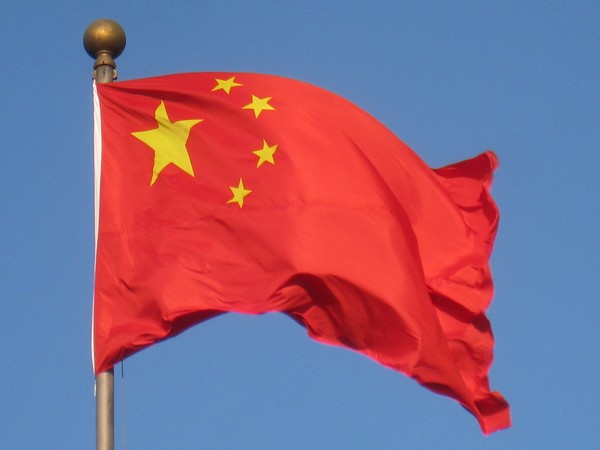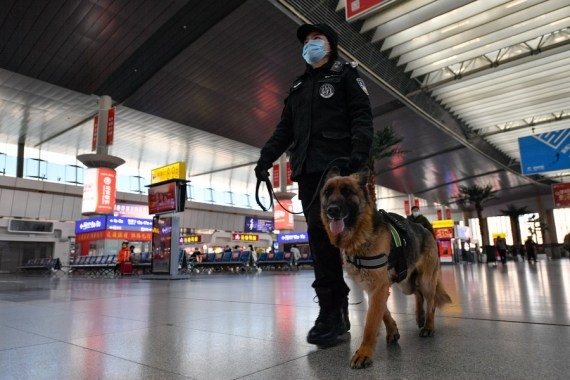Canada has reportedly aided Chinese authorities in capturing fugitive nationals abroad, with trade concessions from Beijing encouraging continued cooperation…reports Asian Lite News
The Canadian government has given Chinese law enforcement authorities assistance in their pursuit of fugitive Chinese nationals living abroad and Beijing has ensured Canada’s continuing cooperation by moves such as bartering on trade, according to an investigation by Canadian Broadcasting Corporation (CBC)’s The Fifth Estate.
The Fifth Estate said that in Canada that help has sometimes come as a result of quid pro quo deals, people with first-hand knowledge of the relationship, including two former Canadian ambassadors to China.
A former Royal Canadian Mounted Police (RCMP) operations officer in British Columbia Calvin Chrustie said in an interview that he received direction “from Ottawa at the highest level” to “assist and collaborate with” Chinese officials regarding a “high-profile fugitive that they were after in the Vancouver area.”
Chrustie said he refused to facilitate a meeting for the Chinese officials who wanted to interview the fugitive and convince the person to voluntarily return to China to face prosecution.
China has ensured Canada’s continuing cooperation by bartering on trade, offering assistance fighting illegal drugs and by negotiating the release of Canadians arbitrarily detained in China, CBC’s The Fifth Estate investigation found.
The Fifth Estate is CBC News’ award-winning investigative series.

Veteran Toronto immigration lawyer Lorne Waldman, who represents a number of people now in Canada who are wanted by Chinese authorities said: “Our economic interests sort of drove this.”
He said: “We turned a blind eye to the lack of rule of law in China and turned a blind eye to the fact that we should be way more sceptical about the evidence coming from China. And as time went on, we turned a blind eye to the fact that Chinese agents were acting in Canada.”
Public Safety Minister Dominic LeBlanc declined to be interviewed for the story, the report said.
Earlier this year, politicians in Ottawa decried the reported existence of several alleged Chinese police stations in Montreal, Toronto and Vancouver. But Canadian officials were already well aware of Chinese police operations in Canada, it said.
Since 2014, the Chinese government has aggressively pursued the return of alleged corrupt public officials and economic criminals living abroad through long-arm police operations it dubbed Sky Net and Fox Hunt, the report said.
According to the Chinese government, thousands of alleged fugitives have been returned to China to face prosecution. Many returns are highlighted on state television, as per CBC’s The Fifth Estate.
Canada’s National Security and Intelligence Committee of Parliamentarians in its 2019 annual report found that Chinese security officials have taken a number of measures to conduct Operation Fox Hunt, “including diplomatic pressure on foreign states to co-operate with their investigations and covert trips to persuade or coerce fugitives to return. They employ these measures with Canada.”
Critics, however, say that Canada co-operated with China’s fugitive hunt for years while ignoring or downplaying issues in China around the lack of an independent judiciary and the use of coercion, including torture, to gather evidence.
“We’ve been successful in cases involving Chinese accusations in getting the evidence thrown out because it was the product of torture,” Waldman said.
Waldman declined requests from The Fifth Estate to interview clients of his who are fugitives from China over fears that family members back home could face retribution from Beijing.
Waldman told The Fifth Estate that not only is the federal government still trying to remove his clients wanted by China, but CSIS (Canadian Security Intelligence Service) officials have also interviewed some of those same clients to determine to what extent they are being harassed or threatened by Chinese authorities to return to face charges.
“Some of these were people that [the Canada Border Service Agency] was actively trying to send back to China,” Waldman said.
CSIS declined to be interviewed for this story, according to CBC’s The Fifth Estate, but in an email, a spokesperson said that China uses “all elements of state power to carry out activities that are a direct threat to our national security and sovereignty.”
One notable example of that, the spokesperson said, is “Operation Fox Hunt, which claims to target corruption but is also believed to have been used as cover for silencing dissent, pressuring political opponents, forcing repatriations and involuntary returns of [People’s Republic of China] nationals or non-PRC nationals born in the PRC, and instilling a general fear of state power no matter where a person is located.”
Because Canada does not have an extradition treaty with China, the immigration and refugee system is used to remove alleged fugitives. Canadian officials present evidence at Immigration and Refugee Board hearings that they receive from Chinese authorities, the report said.
“I don’t believe a Superior Court judge would ever authorize an extradition back to China given the state of the rule of law there,” Waldman said. “So if that’s the case, and we’re not prepared to extradite and we’ve never extradited, why are we deporting people back to China based on evidence that we know is not reliable?”
In 2015, China released a list of 100 wanted economic fugitives, of whom 26 were believed to be in Canada.
A Canada Border Services Agency breakdown of thousands of Chinese nationals removed from Canada obtained through access to information disclosed that between 2008 and 2020, 33 were removed because of allegations of “criminality” or “serious criminality” in another country.

The CBSA declined to be interviewed for this story.
A spokesperson for the agency said in an emailed statement: “In all cases where the CBSA decides to advance an allegation of inadmissibility, the Immigration and Refugee Board is the final decision-maker.”
The Fifth Estate found that over the past two decades, China made Canada’s cooperation in its fugitive hunt conditional for cooperation on matters urgent to Canada.
According to CBC’s The Fifth Estate, the RCMP and CBSA participated in working groups with their Chinese counterparts to discuss various areas of collaboration, including repatriating fugitives in Canada back to China.
The 2019 annual report of the National Security and Intelligence Committee of Parliamentarians further noted that in 2015, Global Affairs Canada took the lead in Ottawa and “established an interdepartmental working group with CSIS, the RCMP, the Department of Justice and CBSA that met regularly (every two to three months) to discuss Fox Hunt.”
The RCMP declined The Fifth Estate’s interview request for this story, but in an email response said that “through our Interpol Ottawa office and our RCMP liaison officer program, the RCMP works with foreign law enforcement agencies to facilitate the international aspects of investigations.
“The RCMP’s assistance in international matters is always conducted with due diligence and in accordance with established policies and procedures in Canada,” the email said.
The beginnings of Canada’s co-operation with China’s global fugitive hunt go back more than 20 years to a sweeping corruption case in Fujian province, the report said.
In 1999, Canadian immigration officials received a refugee status claim from a man known in Western media as “China’s most wanted” and the “smuggling king.”
Lai Changxing had allegedly wined, dined and bribed Chinese officials as he imported cigarettes, oil and other commodities tax free. When political winds began to shift, Lai fled China and arrived in Canada.
“Lai was a spectacularly successful fraudster,” David Mulroney, a former Canadian ambassador to China, told The Fifth Estate. “It was reputed that his links went up to the very highest leadership levels in Beijing, so he was a very sensitive person for them.”
In 2000, in an attempt to coerce Lai to return, three Chinese security agents and Lai’s brother secretly travelled to Vancouver, stating on visa applications they were on an agricultural business trip. The plot was later revealed by Lai at his refugee proceedings.
As a part of the proceedings for Lai’s refugee application, Canadian officials reviewed sworn statements of Chinese nationals provided by Chinese authorities alleging knowledge of his illegal activities, including one from a woman named Tao Mi, who had worked for Lai and his wife.
Worried that her statement would be used to return Lai to China, in November 2001 Tao Mi contacted Canadian lawyer Clive Ansley.
Lai Changxing entertained hundreds of party officials in the Red Mansion in the city of Xiamen, in Fujian province. It contained karaoke rooms and massage parlours. (X)
Ansley was practising in Shanghai and had been taking statements from Chinese nationals for Lai’s defence.
Tao Mi had come to Ansley, he said, to recant her statement incriminating Lai. She said she had signed the document only after she had been detained in a hotel room for two months and threats were made against her young son.
“She was shaking like a leaf the whole time,” Ansley said, and worried about what would happen to her if Chinese authorities found out she was recanting her statement against Lai.
Lai’s defence lawyers informed Canadian immigration officials of Tao Mi’s recantation, with the understanding that her identity would not be provided to Chinese authorities.
But Ansley said he was outraged and “ashamed to be Canadian” when he learned that Tao Mi had, just weeks after her recantation to him, been further questioned by an RCMP officer at the Canadian consulate in Shanghai in the presence of a Chinese security official.
The Fifth Estate obtained the RCMP interrogation video tapes. As the interview begins, a Chinese state security official joins Tao Mi, the RCMP officer and a translator in the small boardroom.
In 2007, a Federal Court judge making an order on Lai’s case said Tao Mi’s interrogation by the RCMP at the consulate was “most inappropriate, to say the least.”
“It is certainly no defence to argue,” Justice Yves de Montigny continued, “that Tao Mi’s interrogation statement was fully voluntary and simply confirmed what she had said in her original testimony. What else could be expected, with a Chinese state official present in the room?”
Ansley last saw Tao Mi in his office in Shanghai 20 years ago.
“I don’t believe she’s alive,” Ansley said. “I think she meant it quite literally when she said: ‘If the Chinese police find out that I talked to you, I’m dead.’”
Lai Changxing was removed from Canada and returned to China in 2011, but only after high level assurances from China that he would not be tortured or put to death. Lai’s protracted Canadian refugee claim frustrated Chinese government officials and overshadowed Canada-China relations for a decade — setting the stage for Canada-China law enforcement co-operation that continues today.
“I remember speaking with the Chinese ambassador,” Mulroney said.
“And he said: ‘David, we will never have a normal relationship or things will not be the same until you return Lai Changxing,’ and I said: ‘Ambassador, I’m sorry you believe that but that’s what — you know, this is a self-inflicted wound.
“There’s a process that Lai has to go through. He entered Canada illegally, you knew his background, you didn’t share that with us, you sent a team in, you know, a clandestine team in to bring him out, so you have nobody but yourselves to blame for this.’”
The Chinese Embassy in Ottawa did not respond to The Fifth Estate’s interview request, the report said. (ANI)

Leave a Reply